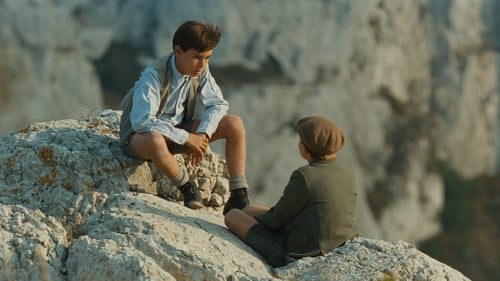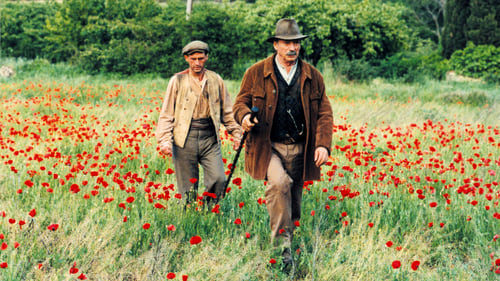
Le Papet
In a small village of Haute-Provence, it is an event. The abandoned bakery comes back to life. Aimable and his wife Aurélie bring out the first batch of bread for the happiness of the inhabitants. Among the first customers, Dominique, a young shepherd, does not leave Aurélie indifferent...

The film is set in Marais, a quiet region along the banks of Loire river in 1918. Riton is afflicted with a bad-tempered wife and three unruly children. Garris lives alone with his recollections of World War I trenches. Their daily life consists of seasonal work and visits from their two pals: Tane, the local train conductor and Amédée, a dreamer and voracious reader of classics.

My Mother's Castle (Le chateau de ma mere) is a sequel and companion piece to My Father's Glory (La Gloire de Mon Pere), both based on the childhood recollections of Marcel Pagnol. Like its predecessor, the movie explores the adventures of the young Marcel during his summers at the family summer home in Provence.

Mr. Henry
Emmanuel, 37, lives in Paris with his wife, Irene, and his daughter Anne, 14 years old. He accidentally discovers that Irene is receiving mail in the remaining mail. She refuses to follow Emmanuel to Italy where he has to write a biography of Filippo Lippi. Distraught, Emmanuel decided to leave immediately for Florence.

Anglade, le croyant
In this, the sequel to Jean de Florette, Manon (Beart) has grown into a beautiful young shepherdess living in the idyllic Provencal countryside. She plots vengeance on the men who greedily conspired to acquire her father's land years earlier.

Anglade, le croyant
In a rural French village, an old man and his only remaining relative cast their covetous eyes on an adjoining vacant property. They need its spring water for growing their flowers, and are dismayed to hear that the man who has inherited it is moving in. They block up the spring and watch as their new neighbour tries to keep his crops watered from wells far afield through the hot summer. Though they see his desperate efforts are breaking his health and his wife and daughter's hearts, they think only of getting the water.

Le maraîcher
Max, who dreams of adventures, abandons his studies at 18 to become involved in the navy. He becomes the sailor 512.

Himself
In the streets of Marseille, René Allio encounters, once again, the spaces of his childhood, and remembers his family history.

Charles - un ancien militant
Michel left Marseilles to Italy when he was twenty years old. Courageous and active, he has succeeded in the construction industry. Thirty years later, his return to Marseilles, for his aunt's burial will abruptly change the life of all of his family, who was first fascinated by his social success. He is regarded as the son who made it like wonder. Michel is the only one who has emigrated. They have all remained in the home country ("le pays") and their social status has hardly changed: workmen, small employees, craftsmen, all living in a modest framework.








